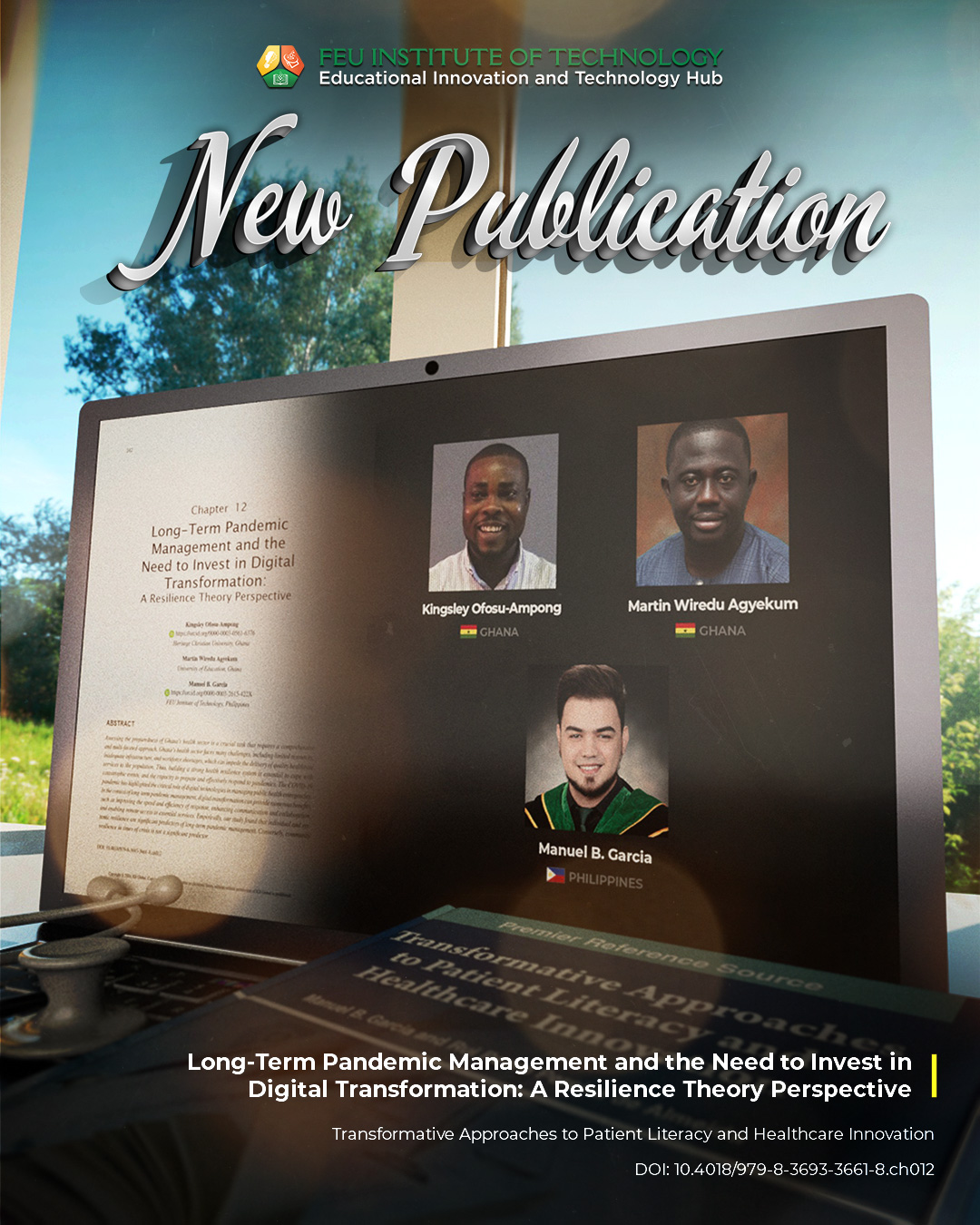Learning to Live with Pandemics: A Resilience Theory Approach to Digital Transformation
Researchers explore the potential of digital transformation to revolutionize long-term pandemic management strategies through a Resilience Theory Perspective.
April 3, 2024
Research
The COVID-19 pandemic has exposed vulnerabilities in healthcare systems and disaster preparedness. Hospitals became overwhelmed, highlighting the need for increased capacity and resource allocation. Existing plans for natural disasters proved inadequate in the face of a biological threat, demanding a reevaluation of response strategies. The pandemic's disruption is a stark reminder of the need to strengthen healthcare infrastructure and develop adaptable plans for future crises.
At the height of the pandemic, digital technologies rose to the occasion, highlighting their vital role in managing public health emergencies. Eventually, more stakeholders from various sectors recognized how digital transformation can benefit long-term pandemic management. Some of its contributions include improving response speed and efficiency, enhancing communication and collaboration, and enabling remote access to essential services.
Pandemic Management and Resiliency from Ghana’s Perspective
Chapter 12 of the book “Transformative Approaches to Patient Literacy and Healthcare Innovation,†an insightful book by Manuel B. Garcia (FEU Institute of Technology, Philippines) and Rui Pedro Pereira de Almeida (University of Algarve, Portugal), titled “Long-Term Pandemic Management and the Need to Invest in Digital Transformation: A Resilience Theory Perspective,†presents a comprehensive overview of Ghana’s existing knowledge on long-term pandemic management. Sharing their insights for this perspective from educational institutions in Ghana are Kingsley Ofosu-Ampong from the Heritage Christian University and Martin Wiredu Agyekum from the University of Education.
The study pinpoints critical areas for further research on the long-term effects of COVID-19, particularly in healthcare systems like Ghana that face unique challenges. It aims to inform public health strategies, policies, and healthcare practices in Ghana and similar settings by identifying research gaps and proposing future directions, ultimately contributing to improving health outcomes and reducing the socio-economic impact of future pandemics globally.

Understanding the Resilience Theory
Chapter 12 uses the Resilience Theory to explain how systems adapt and grow during challenges, especially for long-term pandemic management. Applying it to healthcare systems, like Ghana's, shows how they withstand and recover from crises like COVID-19. The theory identifies the strengths and strategies needed to maintain and improve healthcare during and after pandemics. It also analyzes how digital transformation can enhance the resilience of healthcare systems. This approach is crucial for guiding effective responses to global health emergencies. It emphasizes the importance of adaptability and growth in the face of new health challenges, highlighting why investing in digital infrastructure is vital for building resilient healthcare systems.
Moreover, the Resilience Theory focuses on the individual, community, and systemic capacity to adapt and recover from situations and disruptions in uncertain periods. It proposes a building block of resilience at different levels, such as individual, community, and systemic levels for maximum efficiency.
Ghana Against The Pandemic
During the onset of the COVID-19 pandemic, Ghana’s government implemented several measures to curb its spread, including social distancing, quarantine, and lockdowns. It also leveraged information technology by disseminating timely and accurate information about the virus.
However, despite the policies and actions, Ghana’s health system and its preparedness to fight against pandemics remain weak. Ghana possesses ample human resources, strategic plans, and operational guidelines for emergencies. However, weaknesses persist in local-level program coordination, collaboration across sectors, and reliance on external funding. To strengthen its health system's resilience, Ghana needs a well-coordinated national action plan that extends to local levels, reduces dependence on donor funding, and leverages technology to enhance coordination within and between sectors.
Investing in Digital Transformation
The COVID-19 pandemic underscored the importance of digital tools in managing public health emergencies. Digital transformation, the integration of digital technologies across various sectors, offers significant benefits during pandemics. It can speed up response times, enhance communication, and enable remote access to critical services. A key advantage is facilitating remote healthcare. Telemedicine, using digital tools for consultations and treatment, has proven crucial in fighting COVID-19. It allows healthcare professionals to safely manage patients, reducing strain on facilities and increasing access to care, especially in remote areas.
Effective pandemic management requires collaboration across disciplines, sectors, and government, encompassing public health, healthcare, emergency response, policymaking, and the public itself. Strategies include surveillance, containment, mitigation, and treatment. The researchers argue for a multi-faceted approach to digital transformation as a critical element in long-term pandemic management and preparedness. Such transformations can significantly improve communities like Ghana’s ability to predict, prevent, and manage future outbreaks.
Patricia Bianca S. Taculao-Deligero is a Bachelor of Arts in Journalism Graduate from the University of Santo Tomas. She has an extensive portfolio from working in various local media outlets, with articles focusing on lifestyle, entertainment, agriculture, technology, and local government units, among other subjects. Her specialty is in feature writing. She is also proficient in news writing.
